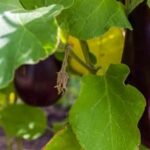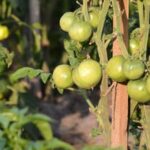Container vegetable gardening is a popular and accessible way to grow your own produce, even if you have limited space. One of the most important aspects of successful container gardening is selecting the right soil for your plants. In this article, we will delve into the different types of soil suitable for container vegetable gardening and provide tips on how to choose the best soil for your specific needs.
Using containers for vegetable gardening offers a range of benefits, including the ability to control soil quality and drainage. Whether you are growing tomatoes on a small patio or cultivating herbs in a sunny kitchen window, container gardening allows you to tailor your growing environment to suit the needs of your plants.
Since the type of soil used in containers can greatly impact plant growth and health, it is crucial to understand what soil is best suited for your container vegetable garden.
The success of your container vegetable garden largely depends on the quality and composition of the soil used. Proper understanding of the importance of soil in container gardening, as well as knowing how to prepare and maintain healthy soil, will ultimately contribute to an abundant harvest. So let’s explore the various types of soil suitable for container gardening and learn about best practices for choosing and preparing soil that will help your vegetable plants thrive.
Benefits of Using Containers for Vegetable Gardening
Container vegetable gardening is a popular option for individuals who want to grow their own produce but have limited space. One of the main benefits of using containers for vegetable gardening is the ability to control the soil and environment in which the plants grow.
This is especially important for those who live in urban areas or apartments where traditional garden space is not available. Additionally, containers can be easily moved around to optimize sunlight and temperature conditions for the plants.
Another benefit of container vegetable gardening is the reduced risk of soil-borne diseases and pests. When using containers, gardeners can start with fresh, disease-free soil each season instead of dealing with potential issues in the ground. This can lead to healthier plants and higher yields. In addition, containers provide better drainage, which can prevent root rot and other water-related issues that commonly arise in traditional gardens.
Furthermore, container gardening allows for greater flexibility and creativity in terms of design and aesthetics. Gardeners can choose from a wide variety of container shapes, sizes, and materials to suit their individual style and preferences. This makes it possible to create beautiful and functional gardens on balconies, patios, or even windowsills.
| Benefit | Explanation |
|---|---|
| Control over environment | Ability to optimize sunlight and temperature conditions. |
| Reduced risk of diseases | Fresh soil each season leads to healthier plants. |
| Flexibility in design | Variety of container options allows for creative expression. |
Understanding the Importance of Soil in Container Gardening
Container gardening is an increasingly popular way to grow vegetables, especially for those with limited outdoor space. When it comes to successful container vegetable gardening, the importance of soil cannot be overstated. The right soil provides nutrients, proper drainage, and aeration, all essential for healthy plant growth.
Nutrient Content
Soil in container vegetable gardening needs to be rich in nutrients as potted plants are unable to access the natural nutrients found in open ground. Look for potting mixes specifically formulated for vegetables or add organic matter such as compost or well-rotted manure to provide essential nutrients.
Drainage and Aeration
Inadequate drainage can lead to waterlogged soil which can cause root rot and other problems. A good potting mix should also have excellent drainage while still retaining moisture. Look for mixes that contain perlite or vermiculite which improve aeration.
pH Level
The pH level of the soil is important as it affects the availability of essential nutrients. Most vegetables prefer a slightly acidic soil with a pH range between 6.0 and 6.8. Test the pH level of your potting mix and make adjustments as necessary using additives like sulfur or lime.
Choosing the right soil is crucial for the success of your container vegetable garden. Understanding these key factors will help you select the best medium for your plants, leading to healthy growth and a bountiful harvest.
Different Types of Soil Suitable for Container Vegetable Gardening
When it comes to container vegetable gardening, choosing the right soil is crucial for the success of your plants. The ideal soil for container gardening should be well-draining, light, and have good moisture retention. There are several types of soil that are suitable for container vegetable gardening, each with its own unique properties and advantages.
One option is to use a high-quality potting mix specifically formulated for containers. These mixes are typically lightweight and well-draining, providing an excellent environment for root growth and water retention. Another option is to create your own soil blend using a combination of components such as peat moss, perlite, vermiculite, and compost. This DIY approach allows you to customize the soil to meet the specific needs of your vegetables.
It’s also important to consider the nutritional content of the soil. Look for a potting mix or create a blend that contains essential nutrients like nitrogen, phosphorus, and potassium to support healthy plant growth. Soil pH is another factor to keep in mind, as different vegetables thrive in different pH levels. Conduct a soil test or choose a potting mix with a neutral pH around 6.0-7.0 to provide an optimal growing environment for your container vegetables.
| Type of Soil | Advantages |
|---|---|
| Potting Mix | Lightweight, well-draining, good moisture retention |
| DIY Blend (peat moss, perlite, vermiculite, compost) | Customizable, promotes healthy root growth |
Best Practices for Choosing the Right Soil for Container Vegetable Gardens
When it comes to choosing the right soil for your container vegetable garden, there are a few key best practices to keep in mind. The type of soil you use can have a significant impact on the health and productivity of your vegetables, so it’s important to choose wisely. Here are some best practices for selecting the right soil for your container vegetable garden:
- Consider the specific needs of your vegetables: Different types of vegetables have different soil requirements. Some may need well-draining soil, while others may require more moisture retention. Before choosing a soil mix, consider the specific needs of the vegetables you plan to grow in your containers.
- Look for a high-quality potting mix: When it comes to container gardening, using a high-quality potting mix is essential. Look for a mix that is specifically formulated for use in containers, as these mixes are designed to provide proper drainage and aeration for plants grown in pots.
- Avoid using garden soil: While it may be tempting to scoop up some garden soil and use it in your containers, this is generally not recommended. Garden soil can be too dense and may not provide adequate drainage for container-grown plants.
By following these best practices, you can ensure that you select the right soil for your container vegetable garden, setting yourself up for success with healthy and productive crops.
How to Prepare the Soil for Planting in Containers
When preparing the soil for planting in containers, it is important to ensure that it provides the necessary nutrients and drainage for the vegetables to grow healthily. Here are some tips for preparing the soil for your container vegetable garden:
- Choose the right type of soil: When selecting soil for your containers, opt for a high-quality potting mix specifically designed for container gardening. These mixes are formulated to provide good drainage and aeration, which are essential for healthy root development.
- Fill the containers properly: When filling your containers with soil, make sure to leave enough space at the top to allow for watering without spillage. It’s recommended to fill the container up to an inch below the rim to prevent water from overflowing when watering your plants.
- Add organic matter: To further improve the quality of your container soil, consider adding organic matter such as compost or well-rotted manure. This will help enrich the soil with essential nutrients and promote beneficial microbial activity.
Properly preparing the soil in your containers is crucial for establishing a healthy growing environment for your vegetables. By choosing the right type of soil, filling the containers properly, and adding organic matter, you can set up your container vegetable garden for success. Remember to regularly monitor and maintain your container soil throughout the growing season to ensure optimal plant growth.
Maintaining Healthy Soil in Container Vegetable Gardens
Importance of Soil Maintenance
Once you have chosen the right soil for your container vegetable garden, it is important to maintain its health to ensure the successful growth of your plants. Healthy soil provides the necessary nutrients, moisture, and aeration for your vegetables to thrive. Regular maintenance will help prevent soil compaction, nutrient depletion, and pest infestations that can affect the overall health of your plants.
Watering Techniques
Proper watering is essential for maintaining healthy soil in container vegetable gardens. It is important to water thoroughly, allowing excess water to drain out from the bottom of the container. Watering frequency may vary depending on the type of vegetables you are growing, the size of the containers, and environmental factors such as temperature and humidity. Implementing a drip irrigation system or using self-watering containers can also help maintain consistent moisture levels in the soil.
Fertilization and Soil Amendments
Regular fertilization is necessary to replenish nutrients in container vegetable gardens as they are easily depleted due to frequent watering. Organic fertilizers like compost or well-decomposed manure are excellent choices for maintaining healthy soil. Additionally, adding soil amendments such as perlite or vermiculite can improve drainage and aeration in compacted soils. Conduct regular soil tests to monitor nutrient levels and pH balance, adjusting fertilization and amendments as needed for optimal plant growth.
Troubleshooting Common Soil Problems in Container Vegetable Gardening
When it comes to container vegetable gardening, soil problems can arise just like in traditional gardening. However, since container gardening has its specific set of challenges, troubleshooting common soil problems is essential for successful growth of your vegetables.
One common problem that may occur with the soil in container vegetable gardening is compaction. Compacted soil can restrict root growth and hinder water absorption, leading to poor plant health. To prevent compaction, it’s important to choose a well-draining soil mix and avoid over-packing the soil when planting.
Another issue that may arise is nutrient deficiency. Since containers have a limited amount of soil, nutrients can become depleted more quickly than in garden beds. Regularly fertilizing your container vegetable garden with a balanced fertilizer will help replenish essential nutrients and promote healthy plant growth.
In addition to nutrient deficiency, pH imbalance can also be a common soil problem in container vegetable gardening. Testing the pH of your soil and adjusting it as needed will ensure that your vegetables are able to access the necessary nutrients for optimal growth. Adding lime to raise the pH or sulfur to lower it are common methods for adjusting soil pH in containers.
Conclusion and Final Tips for Successful Container Vegetable Gardening
In conclusion, choosing the right soil for your container vegetable garden is crucial for the success of your plants. Different types of soil offer various benefits, so it’s essential to understand the specific needs of your vegetables and select the most suitable option. Whether you opt for commercial potting mix, homemade compost blend or a combination of different soils, ensure that it is well-draining and nutrient-rich to support healthy plant growth.
In addition to selecting the appropriate soil, maintaining its health is equally important. Regularly checking for signs of overwatering, compacted soil, or nutrient deficiencies can help prevent potential problems and ensure the long-term productivity of your container garden. Consider adding organic matter like compost or mulch to improve soil structure and fertility.
Finally, don’t forget to monitor the pH level and adjust it if necessary to create an optimal growing environment for your vegetables. By following these final tips and implementing best practices in soil selection and maintenance, you’ll be on your way to a successful container vegetable gardening experience. With the right soil and proper care, you can enjoy a bountiful harvest from your container garden throughout the season.
Frequently Asked Questions
What Is the Best Soil for Container Vegetable Gardening?
The best soil for container vegetable gardening is a well-draining and nutrient-rich potting mix. A good potting mix will typically contain a blend of peat moss, perlite or vermiculite, and compost to provide the right balance of moisture retention and aeration for the plants’ roots.
It’s important to choose a potting mix specifically formulated for container gardening rather than regular garden soil.
What Is the Best Soil for a Vegetable Garden?
The best soil for a vegetable garden is a loamy soil that is well-draining, fertile, and rich in organic matter. Loamy soil contains a balanced combination of sand, silt, and clay particles, which allows for good water retention while also providing proper drainage for healthy root growth.
Adding compost or aged manure can further improve the fertility and structure of the soil.
What Soil to Use in Garden Planters?
Garden planters should be filled with a high-quality potting mix that provides excellent drainage and sufficient nutrients for plants to thrive. Look for a mix specifically designed for use in containers or planters as it will typically contain ingredients like peat moss, perlite, and/or vermiculite to promote good root development and moisture management.
Avoid using regular garden soil in planters as it tends to compact easily in containers, leading to poor drainage and root health issues.

If you’re looking to get into vegetable gardening, or are just looking for some tips on how to make your current garden better, then you’ve come to the right place! My name is Ethel and I have been gardening for years. In this blog, I’m going to share with you some of my best tips on how to create a successful vegetable garden.





